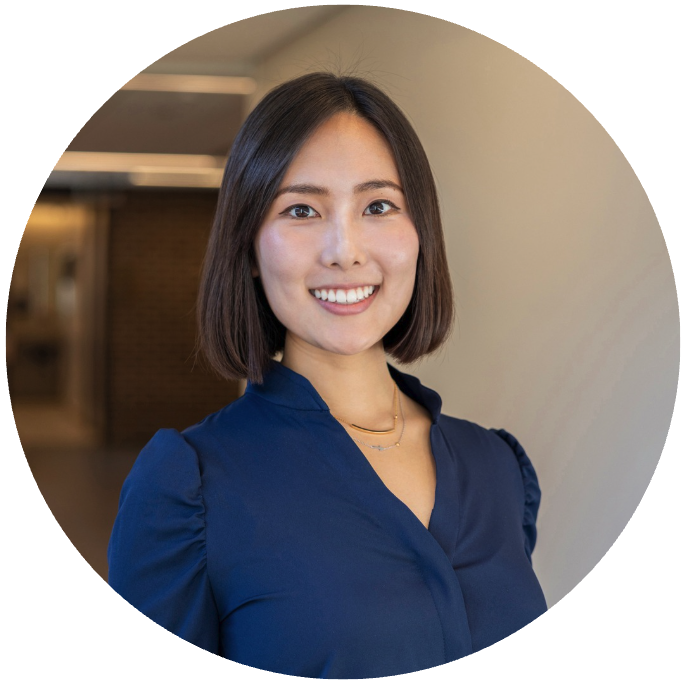Applications
 Part of the Oxford Instruments Group
Part of the Oxford Instruments Group
Expand
Collapse
The Oxford Instruments Lee Osheroff Richardson Science Prize celebrated a brilliant milestone in 2025, reaching its 20th year. Oxford Instruments is proud to continue its support of early career scientists and to nurture the future quantum technology workforce as it has done for two decades.
Our endeavour with the Science Prizes is to promote and recognise the novel work of young scientists working in the fields of low temperatures and/or high magnetic fields or surface science and support them as they continue a career in research.
The Managing Director of Oxford Instruments NanoScience, Matthew Martin, recently presented this year’s winner, Dr Jeong Min (Jane) Park, a Schmidt Science Fellow in the Department of Physics at Princeton University, with the Lee Osheroff Richardson Science Prize 2025 at the APS Global Physics Summit in Anaheim.
At the meeting, we caught up with Dr Park and discussed her research that won over the Science Prize committee and what’s next for her.
How does it feel to have won the Lee Osheroff Richardson Science Prize?
“I am truly honoured to receive this award and join the distinguished group of past recipients whom I deeply admire. Receiving this award is an encouraging recognition, especially as I begin a new research direction exploring emergent quantum phenomena at even smaller length scales.”
Can you tell us more about the research you submitted?
“When electrons strongly interact in solids, they can give rise to unexpected and fascinating quantum phenomena. My research studies these emergent behaviours in two-dimensional van der Waals (vdW) materials, which not only deepens our understanding of fundamental physics but also has potential applications in future quantum technologies.
As part of my research, I designed a family of superconductors by twisting atomically thin layers of graphene. This “magic-angle twisted multilayer graphene” system hosts robust, strongly coupled superconductivity and correlated phases that can be tuned with electric and magnetic fields.
Toward the later years of my PhD, I also became interested in using vdW materials as platforms for novel measurements. I developed heterostructures that enable simultaneous thermodynamic, tunnelling spectroscopy, and transport measurements, allowing us to directly probe key aspects of the magic-angle graphene family, including interaction-driven spontaneous symmetry breaking, the Pomeranchuk effect, and unconventional superconducting order parameters.”
Is there a particular part of your research of which you are especially proud?
“Rather than the outcomes and results of my research, what I value most are the moments of persistence throughout the process, whether it was troubleshooting a fabrication issue, fixing an instrument, or rethinking my data analysis when my experiments weren’t working. These experiences gave me the confidence to keep pushing forward, and that resilience is what I am most proud of.”
What’s next for your research?
“Having worked on designing new materials and mesoscopic measurement platforms, I am now interested in exploring emergent quantum phenomena at even smaller length scales.
During my postdoctoral, I am using scanning tunnelling microscopy (STM) to directly visualise the electronic structure and quasiparticles in correlated states. My goal is to gain deeper insight into their underlying mechanisms by imaging anyons, exotic particles that obey unconventional exchange statistics.
Looking ahead to the future, I plan to establish my own research group, uniquely combining vdW heterostructure design with subatomic-scale imaging to discover and manipulate novel quantum phases.”
Do you have any final thoughts you would like to share?
“Behind all the exciting research, it is the people who make the biggest difference. I am deeply grateful for the mentorship and support of my PhD advisor, Pablo Jarillo-Herrero. Working with him has been one of the best choices I have made in my life.
I also sincerely appreciate the guidance and collaboration of my mentors and colleagues, including Senthil Todadri, Philip Kim, Amir Yacoby, Ali Yazdani, Yuan Cao, Yonglong Xie, Shuwen Sun, and many others. Moving forward, I hope to give back to the community by being both a dedicated researcher and a supportive mentor.”

Dr Jeong Min (Jane) Park
Lee Osheroff Richardson Prize 2025 winner